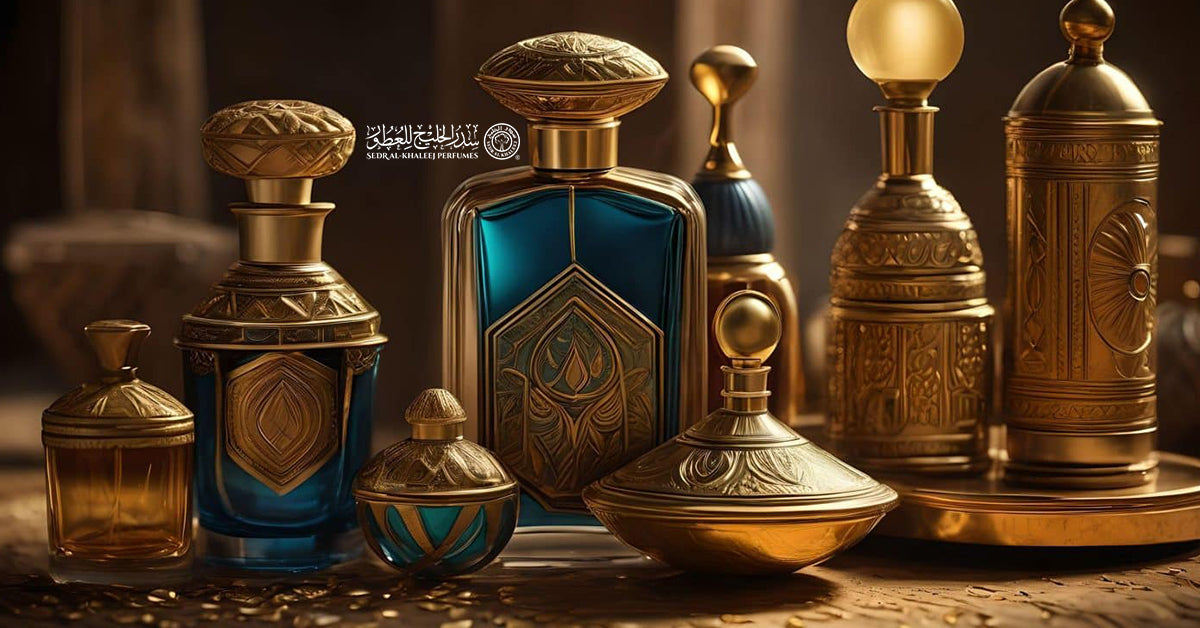Smells are an essential part of our daily lives, they surround us everywhere and greatly influence our emotions and behavior. Smells can make us feel happy, sad, comfortable or excited. They can also play an important role in our impressions of people and places.
The importance of fragrance odor measurement
Perfume's effect on emotion and psychological impact
Scents influence our emotions and behavior in a powerful way. Studies have shown that scents can evoke memories and emotions, and can influence our mood and behavior. For example, fresh scents can make us feel happy and energized, while warm scents can make us feel comfortable and relaxed.
The vital role of odor in forming a personal impression
Smell plays a vital role in our impressions of people and places. When meeting someone new, we notice their body odor and clothing. This odor can make a strong impression on us about them, either positively or negatively. Smell can also affect our impressions of places, for example, the smell of coffee in a coffee shop can make us feel warm and cozy, while the smell of smoke in a place can make us feel uncomfortable and uncomfortable.
The Basics of Perfume Metrology
The brain's odor detection process
When we smell an odor, fragrance molecules travel to the nose and are picked up by olfactory neurons located in the nasal mucosa. These neurons send electrical signals to the brain, where they are processed by a region of the brain called the temporal lobe.
Types of odors
Odors can be classified into several main categories, based on the chemical components that make up their composition. These categories include:
- Floral scents: Characterized by a sweet and refreshing scent, it is made up of ingredients such as jasmine, rose, and musk.
- Woody aromas: Warm and rich, this scent is made up of notes such as sandalwood, cedar, and patchouli.
- Citrus aromas: Fresh and energetic, this scent is made up of ingredients like lemon, orange, and tangerine.
- Fruity aromas: Characterized by a rich and sweet aroma, it consists of ingredients such as apples, pears, and berries.
In addition to these main categories, there are many other scents that can consist of a combination of these basic ingredients.
Perfume Measurement Methods
Odor Recognition Training
The ability to distinguish between odors can be improved through training. This usually involves training a person on a range of specific odors, while learning the association between an odor and a name or description.
Proper fragrance inhalation techniques
There are a range of techniques that can be used to properly inhale fragrances. These include:
- Smell the fragrance in a quiet place where there are no other odors that can be distracting.
- Spray the fragrance on a piece of paper or cloth, then slowly approach it and smell it.
- Smell the fragrance after 5 minutes.
- Smell the fragrance on pulse points, such as the neck and wrists.
Electrical sensor
Electrosensing uses the recording of the electrical activity of olfactory neurons to measure the sensation of odor. This technique can be used to identify the chemical components of an odor, as well as the strength, duration, and aroma.
Spectroscopy techniques
Spectroscopic techniques use light to analyze the chemical composition of an odor. This technique can be used to identify the chemical components of an odor, as well as the ratio of each component.
Perfume measurement methods are used for various purposes, including:
- Perfume development: These methods can be used to determine the ideal chemical components of a fragrance, as well as to evaluate the stability of an odor.
- Perfume QualityReview : These methods can be used to determine the quality of the fragrance, as well as to determine if the fragrance contains any impurities.
- Diagnosing olfactory issues: These techniques can be used to diagnose issues with the sense of smell, such as anosmia or bad odor.
How to choose fragrances correctly
Understanding skin type
The first step in choosing the right fragrance is to understand your skin type. Skin affects the development of scents, so it's important to choose a fragrance that matches your skin type.
There are three main skin types:
- Dry skin: Dry skin is characterized by rough, flaky skin. Scents tend to linger longer on dry skin, so it's important to choose light, fresh fragrances.
- Oily skin: Oily skin is oily and prone to acne. Scents tend to evaporate quickly on oily skin, so it's important to choose fragrances that are rich and strong.
- Combination skin: Combination skin is characterized by oily skin in some areas and dry skin in others. It's important to choose a fragrance that suits different areas of the skin.
Skin's influence on odor development
Skin affects the development of odors in several ways, including:
- Heat: Scents tend to diffuse faster in warm skin, so it's important to choose a fragrance that matches your skin temperature.
- pH: The pH of your skin affects how it reacts to scents. Acidic skin tends to absorb scents faster, so it's important to choose a fragrance that matches your skin's pH.
- Natural ingredients: Skin reacts differently to natural and synthetic ingredients. It is important to choose a fragrance that consists of ingredients that are compatible with your skin
Fragrances for different skin types
Here are some tips for choosing the right fragrances for different skin types:
- Dry skin: Choose light and fresh fragrances, such as floral or citrus scents.
- Oily skin: Choose fragrances that are rich and powerful, such as woody or oriental scents.
- Combination skin: Choose medium-strength fragrances, such as fresh or floral scents.
The Perfect Time to Apply Perfume
The ideal time to apply perfumedepends on the type of fragrance and the occasion of use. In general, it is recommended to apply perfumesafter showering, when the skin is clean and moisturized.
Daytime and nighttime fragrances
The scents you choose can vary depending on the time of day. For the day, choose light and fresh fragrances, such as floral or citrus scents. For the night,choose rich and powerful fragrances, such as woody or oriental scents.
Fragrances for different seasons of the year
The scents you choose can vary depending on the season of the year. In summer, choose light and fresh fragrances, such as floral or citrus scents. In winter, opt for rich and powerful fragrances, such as woody or oriental scents.
Additional tips for choosing fragrances correctly
- Try the fragrance before you buy it: It's important to try a fragrance before you buy it, so you can make sure it suits you.
- Apply fragrance to pulse points: Scents spread faster on pulse points, such as the neck and wrists.
- Spray the fragrance sparingly: Spraying a little fragrance is enough for a light, pleasant scent.
- Wait for the fragrance to dry before touching clothes: Perfume may leave stains on clothes if it hasn't dried completely.
Perfume Quality Check
Checking the quality of fragrances depends on several factors, including:
- The constituent elements of fragrances: Perfumes are made up of a range of ingredients, including essential oils and substances needed to stabilize odors. The ingredients must be high-quality, natural or synthetic ingredients.
- Relying on sensory experiences: The quality of a fragrance also depends on sensory experiences, such as strength, duration, and odor. Fragrances should be strong enough to be noticed, but not so strong as to be irritating. Fragrances should last long enough, but not so long that they are irritating. The scent should be pleasant and pleasant.
Fragrance Ingredients
Fragrances are made up of a range of ingredients, including:
- Essential oils: These are the main components of fragrances and are responsible for the essential aroma of the fragrance. Essential oils can be extracted from plants, animals, or minerals.
- Scent stabilizers: These substances are added to fragrances to enhance the persistence of the scent and prevent it from evaporating quickly. Stabilizers include alcohols, resins, and synthetic materials.
Relying on sensory experiences
The quality of a fragrance also depends on sensory experiences, such as strength, duration, and odor.
- Strength: Fragrances should be strong enough to be noticed, but not so strong as to be irritating. The strength of a fragrance can be measured using a perfume densitometer.
- Duration: Fragrances should last long enough, but not so long that they are irritating. The duration of a fragrance can be measured using a perfume longevity meter.
- The smell: The odor should be pleasant and pleasant. Odor can be Review using the human sensory scale.
In-store fragrance testing techniques
A variety of techniques are used to test fragrances in stores, including:
- Spray the fragrance on pulse points: Scents spread faster on pulse points, such as the neck and wrists.
- Smell the fragrance after 5 minutes: The scent of a perfume changes over time, so it's important to smell the fragrance after 5 minutes. This will help determine how strong and persistent the fragrance is.
- Ask someone else's opinion: Someone else may notice something you didn't.
Review The persistence and evolution of odors on skin
Review The persistence and development of odors on the skin depends on several factors, including:
- Skin type: Skin affects the development of scents, so it's important to consider skin type when Review a fragrance.
- Temperature: Temperature affects how quickly scents spread, so it's important to Review the fragrance at room temperature.
- Humidity: Humidity affects how quickly scents evaporate, so it's important to Review the fragrance at a medium humidity level.
Review persistence and evolution of odors on the skin using a variety of techniques, including:
- Persistence test: The fragrance is sprayed on the pulse points and left for 24 hours. The fragrance is then Review to determine its strength and persistence.
- Evolution test: The fragrance is sprayed on the pulse points and left for 30 minutes. The fragrance is then Review to determine how the scent evolves over time.
How to preserve your fragrances
Perfumes need care to maintain their scent and longevity. Here are some tips on how to preserve your fragrances:
Storing Fragrances Properly
- Store perfumes in a cool, dark, dry place. Heat, light, and moisture will damage perfumes and change their scent.
- Keep perfumes away from direct sunlight. Even if your perfumes are in a cool place, direct sunlight can damage them.
- Keep fragrances away from other heat sources, such as an oven or stove. Excessive heat can cause the fragrance to evaporate quickly
- Store perfumes indoors. This helps protect perfumes from dirt, dust, and other substances that can affect their scent.
Staying away from external influences
- Keep fragrances away from chemicals. Chemicals can react with fragrances and change their odor.
- Keep fragrances away from other fragrances. Perfumes can react with each other and change their odor.
- Keep fragrances away from moisture. Moisture can ruin perfumes and change their scent.
Additional tips for preserving your fragrances
- Use fragrances frequently. This will help keep them fresh and prevent rapid evaporation.
- Don't leave perfumes in the car. The extreme heat in the car can damage fragrances and change their scent.
- If you haven't used the fragrance for a long time, you can store it in the refrigerator. This will help keep it fresh for longer.
FAQ
Does the type of food affect the smell of perfume?
Yes, the type of food temporarily affects the scent of perfumes.
Can the scent of perfumes on the skin change over time?
Yes, the scent of fragrances on the skin can change over time due to their interaction with the skin's individual chemistry.
Can multiple fragrances be used at the same time?
Yes, multiple fragrances can be used at the same time, but care should be taken to avoid over-mixing.
How to get rid of strong perfume odor?
To get rid of the strong perfume odor, you can use mild soap and water or use a deodorizer if available.
Is the scent of perfume affected by nutrition and drink type?
Yes, the smell of perfumes is affected by nutrition and the type of drink, as consuming certain foods and drinks can change the smell of perfumes.








Leave a comment
All comments are moderated before they are published.
This site is protected by hCaptcha and the hCaptcha Privacy Policy and Terms of Service apply.